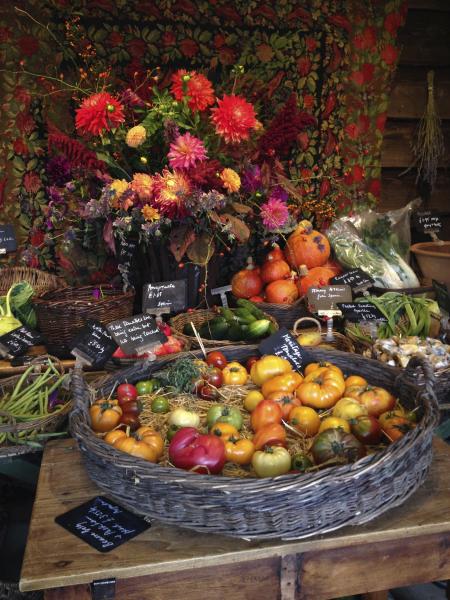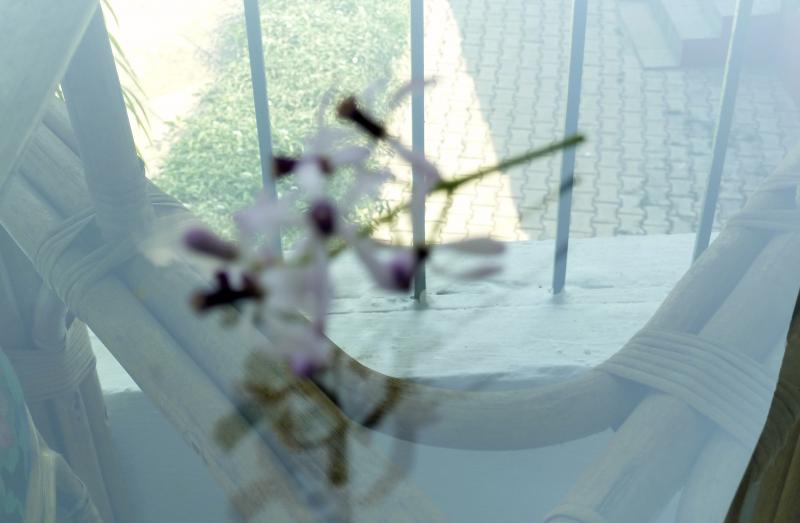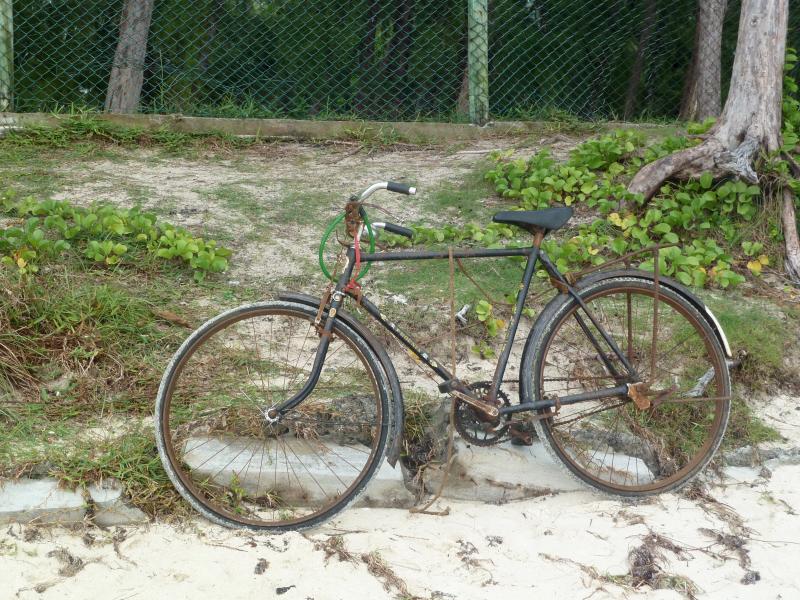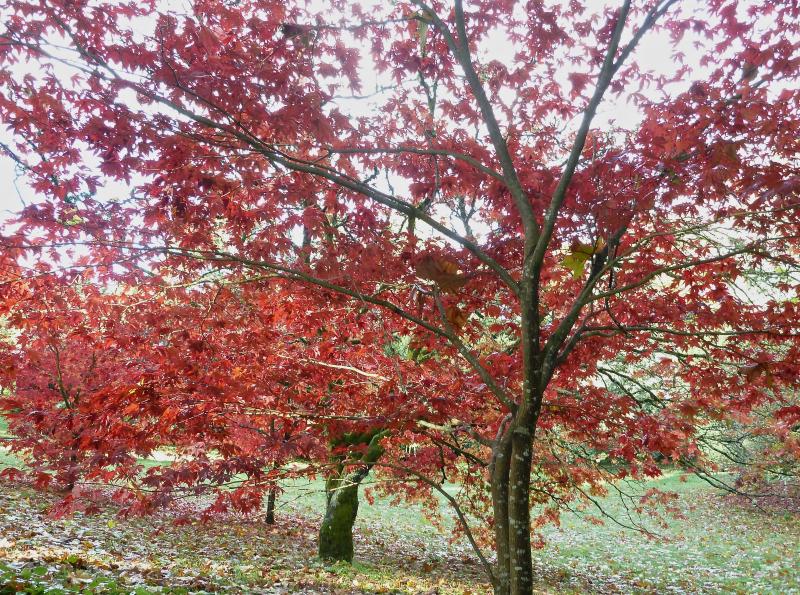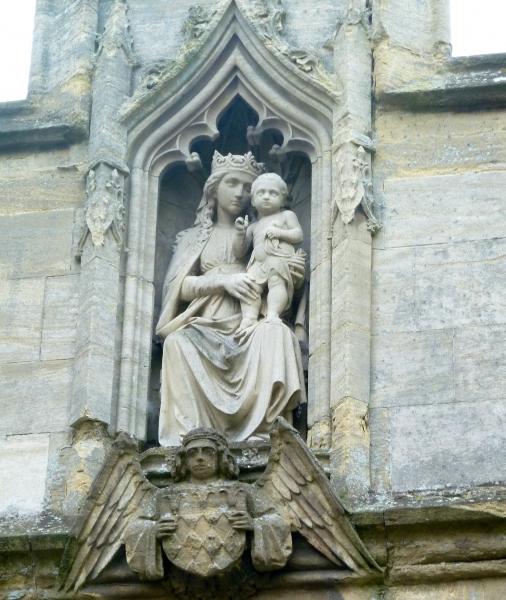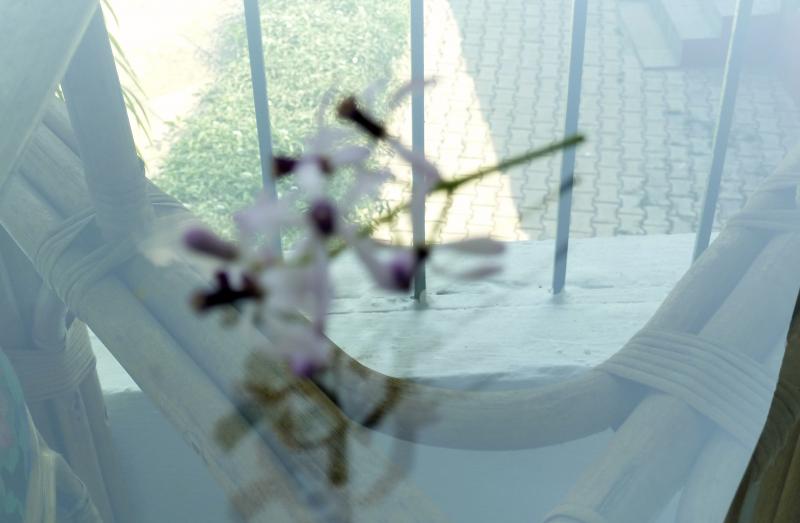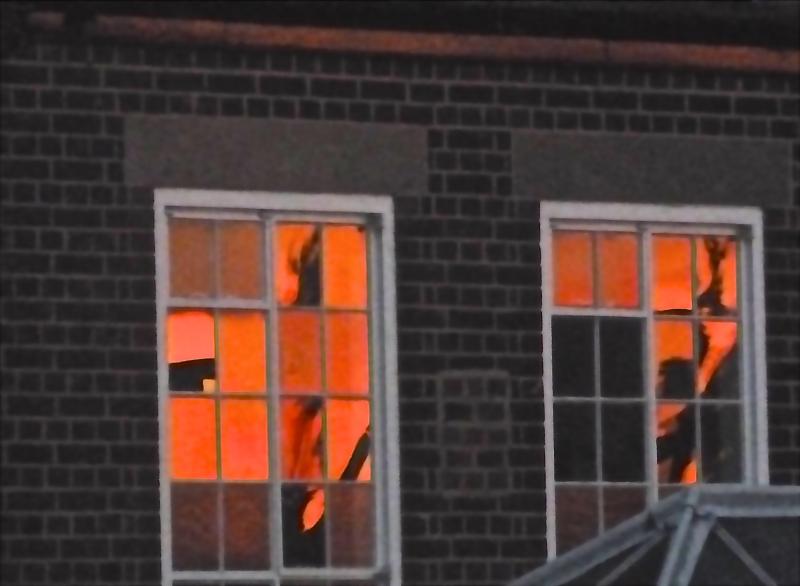
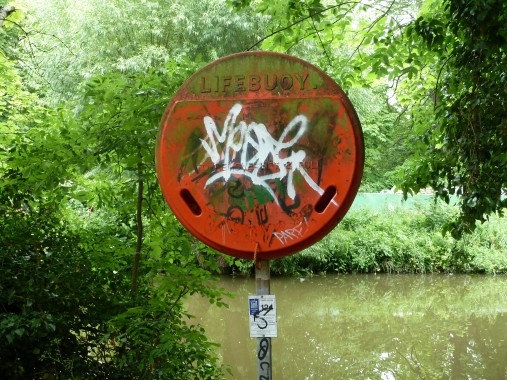 The cries of a girl in distress made me leap up from my desk overlooking our cul-de-sac, the river flowing sweetly alongside, and run down to investigate the commotion (I work at two desks, one of which is useless for work that needs serious concentration, while the other is conducive to deep thought). A distraught young student was running in the direction of the Black Hole, preceded by two young fellows in yellow hard hats, all sprinting like mad to catch the hoodie who’d snatched her phone as she was eating her lunchtime sandwich. The Black Hole is a tunnel of vegetation at the North end of Upper Fisher Row and which provides a safe haven for thieves, drug dealers and other trouble makers.
The cries of a girl in distress made me leap up from my desk overlooking our cul-de-sac, the river flowing sweetly alongside, and run down to investigate the commotion (I work at two desks, one of which is useless for work that needs serious concentration, while the other is conducive to deep thought). A distraught young student was running in the direction of the Black Hole, preceded by two young fellows in yellow hard hats, all sprinting like mad to catch the hoodie who’d snatched her phone as she was eating her lunchtime sandwich. The Black Hole is a tunnel of vegetation at the North end of Upper Fisher Row and which provides a safe haven for thieves, drug dealers and other trouble makers.
Early this morning the buzz of chainsaws proclaimed the start of the end of the druggies’ haven: a team of men from the City Parks Department was hard at work trimming trees and feeding wood into a macerator. Chopping down any form of vegetation, especially a tree, will always bring out the tiger in these conservation conscious parts; and when I walked down to witness the activity a Gilbert and Sullivan-like chorus of, “We know, we know! We’ve been told off already and warned not to touch the fig tree” rang out. (Stopress: Caitlin Moran, Times columnist, has listed tree surgeons among her five favourite kinds of men The Times March 7, 2015): Tree surgeons. In your harnesses, with your chainsaws, you look like kings of the air. You have found a way to be a bit like a gardener, but using massive power tools more usually seen in horror films. That is an admirable career mash-up. I love you, even though you are not really, if we’re being honest, “surgeons”, carrying out life-saving operations, but more like “tree hairdressers”, carrying out a short, back and sides on an elm and then turning the clippings into sawdust for hamster cages. Either way, it’s a hot look. Carry on.)

Chris, the man who cuts down trees
The fig leans over the river and promises a rich harvest, but this is virtual. The fruit will mysteriously disappear before it has a chance to ripen. Squirrels perhaps. But there are worse mischief-makers than squirrels in these badlands. The tree pruning is just the prelude to a serious attack on the brambles and weeds running riot in a small piece of wasteland at the end of our row of houses. This land was leased out by the Council to a woman who, for various reasons, could not keep it under control, but who had a dog-in-the-manger aggression about anyone else taking it over. I had nursed a fond and foolish hope that we in Upper Fisher Row might benefit from a community garden project; but alas, the residents are still in a stage of quite primary evolution and far from a place that might permit such a happy state of affairs to flourish. Still, the Council has found some money to expend on planting a herb garden, which will be in keeping with the historic context of Rewley Abbey, demolished by Henry VIII at the Reformation. When it is planted and ready and the surrounding trees trimmed and healthy, we hope the Black Hole will retreat as a bad memory.

Imagine a tonsured monk stepping into a dinghy to fish for carp from this gate
It was Edmund, Earl of Cornwall, who established six Cistercian monks to pray for his father’s soul. Rewley, with its links with the College of St Bernard (of Clairvaux) in Paris is said to be the very first college in Oxford and the name derives from de Regalis loco. Conforming to the feudal system of benefices and hierarchies, Rewley Abbey owned Yarnton Manor (until recently the Centre of Hebrew Studies), Cassington Mills, various hamlets and agricultural land and London tenements. Then came the first intimations of the Reformation. The Abbot complained to Thomas Cromwell (subject of Hilary Mantel’s novel Wolf Hall) in 1532 that he was fed up with the insolence of King Henry VIII’s servants: “If I shall be accompanied by Italians I shall not be long in the world,” and offered Cromwell the enormous sum of £100 (which Cromwell probably pocketed) for his institution to be let off the hook. But there was evidence for treasonable gossip about the fat king’s divorce among the monks and the Abbey was doomed.
The inhabitants of Upper Fisher Row ought to be a holy lot, but are in fact the opposite- squabbly, anti-social dependents on various mood enhancers, quick to take offence and quick to evade responsibility; ideal subjects to be sermonized to by St Bernard of Clairvaux (1090-1153) who was champion of the Second Crusade and defender of the Jews of Lyons, even as they were being hounded from Oxford. However, Bernard was also the scourge of the Cathars, over 600,000 of whom were massacred less than 60 miles from where I have a house in the Pyrenees. The Cathars can almost be linked to a form of Protestantism, some 300 years before good King Henry seized on the notion for his personal and political manoeuvring.
They rejected the priesthood and the corruption of indulgences, lived by moral and ascetic principles and with them went the romantic idealism of the Troubadors, Occitane culture to be followed by the long and sad decline of the Languedoc into the poorest, most backward area of France.
We plan to grow a herb, or physick, garden in the abandoned plot in honour of the monks of Rewley Abbey and will, of course, be scrupulous in planting only what is legal and strictly above board.













